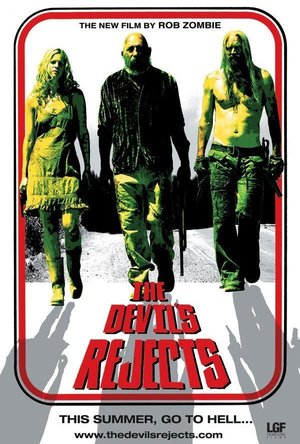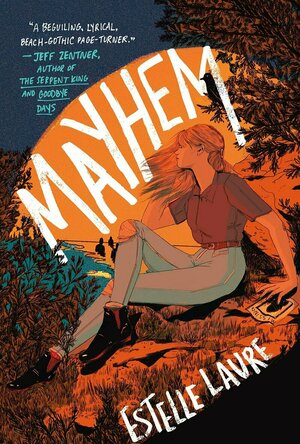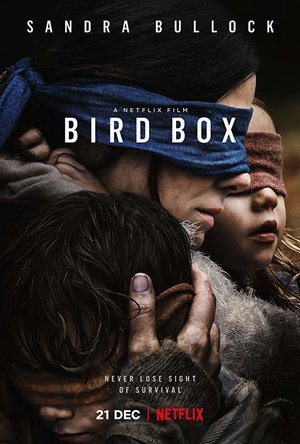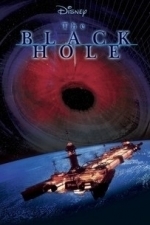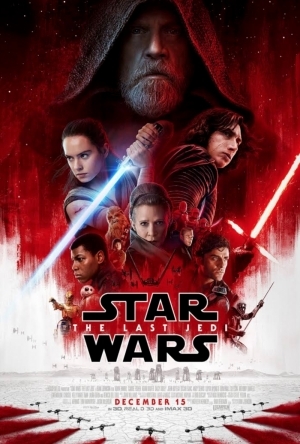Search
Search results
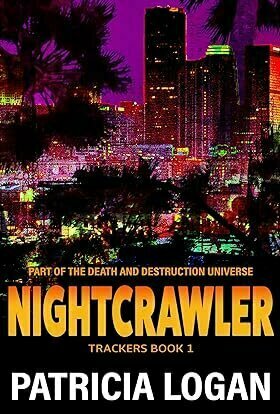
Nightcrawler (Trackers #1)
Book
I’ve always been a sucker for a guy with muscles and a handsome face. If that makes me sound...
Contemporary MM Mystery Suspense Series

Love's Executioner
Book
Love's Executioner offers us the humane and extraordinary insight of renowned psychiatrist Irvin D....
Andy K (10823 KP) rated The Devil's Rejects (2005) in Movies
Oct 16, 2019
Chinese, Japanese, Dirty knees, look at these!
Shortly after the events of House of 1,000 Corpses, Sheriff Wydell and his band of deputies approach and surround the homestead occupied by everyone's favorite murderous, diabolical, psychotic family. Inside, lazy slumbering quickly turns to mounting a counter offensive when the family realizes what is about to happen. The ensuring shootout claims several victims before the aid of tear gas precedes a law enforcement home invasion. Unfortunately, only one family member is captured while Baby and Otis escape out the back. Baby calls their father, Captain Spaulding, to inform him of the pending doom on his way so he can meet up with them subsequently.
The two siblings arrive at a local motel only to perform their brand of debauchery on two couples and friends staying there. They are forced to be in constant fear for their lives whilst their kidnappers decide what to do with them while waiting on their matriarch. The torture endured by their victims is heinous, cruel and unnecessary, but is their way of life.
The law is tightly on their trail waiting for that lead which will lead them to the felons. This is growing personal for the sheriff as he discovers the "rejects" were responsible for the death of his brother. The sheriff decides to hire some disreputable men of his own to use whatever methods they can to acquire the location of his targets.
The inevitable stand off leaves other casualties and a position it will be difficult for the sheriff to return from. The "rejects" always seem to find a way to survive no matter their degree of peril.
This film takes a different direction than that of House of 1,000 Corpses. That film being more of a standard "teenagers wander into a house of horrors" situation, whereas this film feels more like a "Natural Born Killers" type.
The total lack of any sort of normal human decency for the family is truly revolting and is on display every time they interact with anyone including women and children. They even don't really like each other very much and are constantly arguing with one other; their visceral hatred always right on the edge of bubbling over.
The unspeakable cruelty they enact on their victims can seem excessive at times; however, if you have lived through the events of the first film, you know what you are getting into here. When they are attached to their motel guests, you are just waiting for the next moment of panic when their guests start to figure out exactly what type of monsters they are dealing with.
I loved the gritty look of the film along with the mostly 1970s classic rock soundtrack. The scenery and landscapes of the sparse countryside fit the film well as well.
Not too many sequels build or are as good or better than their predecessor, but this film could be one of those for sure.
The two siblings arrive at a local motel only to perform their brand of debauchery on two couples and friends staying there. They are forced to be in constant fear for their lives whilst their kidnappers decide what to do with them while waiting on their matriarch. The torture endured by their victims is heinous, cruel and unnecessary, but is their way of life.
The law is tightly on their trail waiting for that lead which will lead them to the felons. This is growing personal for the sheriff as he discovers the "rejects" were responsible for the death of his brother. The sheriff decides to hire some disreputable men of his own to use whatever methods they can to acquire the location of his targets.
The inevitable stand off leaves other casualties and a position it will be difficult for the sheriff to return from. The "rejects" always seem to find a way to survive no matter their degree of peril.
This film takes a different direction than that of House of 1,000 Corpses. That film being more of a standard "teenagers wander into a house of horrors" situation, whereas this film feels more like a "Natural Born Killers" type.
The total lack of any sort of normal human decency for the family is truly revolting and is on display every time they interact with anyone including women and children. They even don't really like each other very much and are constantly arguing with one other; their visceral hatred always right on the edge of bubbling over.
The unspeakable cruelty they enact on their victims can seem excessive at times; however, if you have lived through the events of the first film, you know what you are getting into here. When they are attached to their motel guests, you are just waiting for the next moment of panic when their guests start to figure out exactly what type of monsters they are dealing with.
I loved the gritty look of the film along with the mostly 1970s classic rock soundtrack. The scenery and landscapes of the sparse countryside fit the film well as well.
Not too many sequels build or are as good or better than their predecessor, but this film could be one of those for sure.
Gareth von Kallenbach (980 KP) rated Snake Eyes: G.I. Joe Origins (2021) in Movies
Jul 22, 2021
The latest film in the G.I. Joe cinematic universe has arrived with “Snake Eyes: GI Joe Origins”. The film was originally planned to arrive in March of 2020 but faced delays due to cinematic closures during the Pandemic.
The film opens with a young boy being orphaned after a group of thugs kills his father. Years later the man is still obsessed with finding out who killed his father and earns a living in underground fighting known as Snake Eyes (Henry Golding)
His exploits get the attention of Kenta (Takehiro Hira); who hires him into his organization with a promise to help him find the man who killed his father.
Snake Eyes soon finds himself working on the docks where he smuggles guns into fish bound for Japan. Despite his misgivings working for criminals, he befriends a man named Tommy (Andrew Koji); who teases him about his demeaning work by calling him “Fish Boy”.
When Kenta forces Snake Eyes to kill Tommy for being a spy; Snake Eyes refuses and the two make a daring escape to Japan. It is learned that Tommy is next in line to run his clan and that Kenta was banished years prior and plans revenge.
Despite mistrust from a trusted associate named Akiko (Hakura Abe); Snake Eyes begins his training in the Ninja Arts which should he survive will make him a valued part of the Clan which Tommy believes is correct thanks to his Blood Debt to Snake Eyes.
The film focuses on various aspects of training before branching into the larger story of divided loyalties and honors which results in a few battles and chases along the way.
While the film does space the action out; it does provide some great cinematography and the action is entertaining even if it lacks much tension.
The biggest issue is that the G.I. Joe/COBRA connection seems a bit forced as The Baroness (Ursula Corbero) arrives to move things along but it is mainly for the purpose of getting characters to do this and get that so the film can move towards the climactic action.
Samara Weaving does show up as Scarlett but she does not have a very large part in the story and aside from a few limited action moments; she seems to be more of the token G.I.Joe representation.
Golding and Hira are very good and their intertwined and complicated relationship is giving plenty of time to develop as their past is a large part of their futures and the film does a good job in explaining their past and future motivations.
The film blends Asian and Western film styles and in doing so creates an enjoyable film that for me was more enjoyable than the prior films in the series. To me those films focused mainly on action and this one was focused on developing characters.
While it remains to be seen what direction future films in the franchise will take; it would be interesting to see more of Snake Eyes story down the line.
3 stars out of 5
The film opens with a young boy being orphaned after a group of thugs kills his father. Years later the man is still obsessed with finding out who killed his father and earns a living in underground fighting known as Snake Eyes (Henry Golding)
His exploits get the attention of Kenta (Takehiro Hira); who hires him into his organization with a promise to help him find the man who killed his father.
Snake Eyes soon finds himself working on the docks where he smuggles guns into fish bound for Japan. Despite his misgivings working for criminals, he befriends a man named Tommy (Andrew Koji); who teases him about his demeaning work by calling him “Fish Boy”.
When Kenta forces Snake Eyes to kill Tommy for being a spy; Snake Eyes refuses and the two make a daring escape to Japan. It is learned that Tommy is next in line to run his clan and that Kenta was banished years prior and plans revenge.
Despite mistrust from a trusted associate named Akiko (Hakura Abe); Snake Eyes begins his training in the Ninja Arts which should he survive will make him a valued part of the Clan which Tommy believes is correct thanks to his Blood Debt to Snake Eyes.
The film focuses on various aspects of training before branching into the larger story of divided loyalties and honors which results in a few battles and chases along the way.
While the film does space the action out; it does provide some great cinematography and the action is entertaining even if it lacks much tension.
The biggest issue is that the G.I. Joe/COBRA connection seems a bit forced as The Baroness (Ursula Corbero) arrives to move things along but it is mainly for the purpose of getting characters to do this and get that so the film can move towards the climactic action.
Samara Weaving does show up as Scarlett but she does not have a very large part in the story and aside from a few limited action moments; she seems to be more of the token G.I.Joe representation.
Golding and Hira are very good and their intertwined and complicated relationship is giving plenty of time to develop as their past is a large part of their futures and the film does a good job in explaining their past and future motivations.
The film blends Asian and Western film styles and in doing so creates an enjoyable film that for me was more enjoyable than the prior films in the series. To me those films focused mainly on action and this one was focused on developing characters.
While it remains to be seen what direction future films in the franchise will take; it would be interesting to see more of Snake Eyes story down the line.
3 stars out of 5
Ivana A. | Diary of Difference (1171 KP) rated Mayhem in Books
Oct 2, 2020
I am so happy to have the opportunity to be part of the blog tour for Mayhem by Estelle Laure. Thank you to the team at Wednesday Books, for sending me an e-copy in exchange for an honest review.
Estelle Laure, the author of This Raging Light and But Then I Came Back believes in love, magic, and the power of facing hard truths. She has a BA in Theatre Arts and an MFA from Vermont College of Fine Arts in Writing for Children and Young Adults, and she lives in Taos, New Mexico, with her family. Her work is translated widely around the world.
It's 1987 and Mayhem Brayburn has always known something's off about her and her mum, Roxy. Roxy is in constant physical pain, and Mayhem has an irresistible pull to water. She knows they aren't like the other people.
When one day, Mayhem's stepfather goes one step too far, her and Roxy escape to Santa Maria, California, the beach town that holds the answers to all of Mayhem's questions about who her mother is. There, she meets the kids who live with her aunt, and she opens the door to the magic that runs through the female lineage of the Brayburn family. The very magic Mayhem is next in line to inherit and which will change her life for good.
But when she is on a mission to search for a man that has been kidnapping girls from the beach, her life takes another dangerous turn and she needs to pay the price of vigilante justice and to ask herself whether revenge is worth the cost.
My Thoughts:
Mayhem by Estelle Laure is one of a kind. Entwined with mystery, magic with family heritage and revenge, this book is full of emotions.
The beginning of the book, although powerful, is very slow. It took me a little while to get into it, but as soon as I was hooked, it stayed amazing.
Mayhem is an interesting character. She holds a lot of emotions inside of her, all from past experiences that have shaped her character. Sad to say that most of her experiences were not good, and she holds the burden for it all. I can imagine how hard it must be to write a character as complicated as Mayhem, and I think Estelle Laure did and amazing job doing it.
I loved the kids as well - each of them different in their own way, battling their own demons and living through their bad experiences in the past. Some of these characters drastically change over the course of the book, which was unbelievable to me.
The magic aspect of this book was interesting, and for me, original. I have seen many reviews mentioning that this might not be true, and it is a very similar story to The Lost Boys. Since I haven't watched The Lost Boys, I am unable to comment on this part. Personally, I really enjoyed the magic concept with the water, the dependency on it and the family heritage part too.
If you are searching for a YA fantasy thriller, with rich characters and mysterious adventures, I think you will definitely enjoy this book.
Estelle Laure, the author of This Raging Light and But Then I Came Back believes in love, magic, and the power of facing hard truths. She has a BA in Theatre Arts and an MFA from Vermont College of Fine Arts in Writing for Children and Young Adults, and she lives in Taos, New Mexico, with her family. Her work is translated widely around the world.
It's 1987 and Mayhem Brayburn has always known something's off about her and her mum, Roxy. Roxy is in constant physical pain, and Mayhem has an irresistible pull to water. She knows they aren't like the other people.
When one day, Mayhem's stepfather goes one step too far, her and Roxy escape to Santa Maria, California, the beach town that holds the answers to all of Mayhem's questions about who her mother is. There, she meets the kids who live with her aunt, and she opens the door to the magic that runs through the female lineage of the Brayburn family. The very magic Mayhem is next in line to inherit and which will change her life for good.
But when she is on a mission to search for a man that has been kidnapping girls from the beach, her life takes another dangerous turn and she needs to pay the price of vigilante justice and to ask herself whether revenge is worth the cost.
My Thoughts:
Mayhem by Estelle Laure is one of a kind. Entwined with mystery, magic with family heritage and revenge, this book is full of emotions.
The beginning of the book, although powerful, is very slow. It took me a little while to get into it, but as soon as I was hooked, it stayed amazing.
Mayhem is an interesting character. She holds a lot of emotions inside of her, all from past experiences that have shaped her character. Sad to say that most of her experiences were not good, and she holds the burden for it all. I can imagine how hard it must be to write a character as complicated as Mayhem, and I think Estelle Laure did and amazing job doing it.
I loved the kids as well - each of them different in their own way, battling their own demons and living through their bad experiences in the past. Some of these characters drastically change over the course of the book, which was unbelievable to me.
The magic aspect of this book was interesting, and for me, original. I have seen many reviews mentioning that this might not be true, and it is a very similar story to The Lost Boys. Since I haven't watched The Lost Boys, I am unable to comment on this part. Personally, I really enjoyed the magic concept with the water, the dependency on it and the family heritage part too.
If you are searching for a YA fantasy thriller, with rich characters and mysterious adventures, I think you will definitely enjoy this book.
Lee (2222 KP) rated Bird Box (2018) in Movies
Dec 26, 2018
It's easy to draw comparisons between Bird Box and one of this years biggest hits, A Quiet Place. As Malorie (Sandra Bullock), guides two young children towards a boat, all three of them blindfolded and terrified of the consequences should they remove them, the similarities with the post apocalyptic themes of A Quiet Place are clear. In that movie, you couldn't make a sound for fear of drawing the attentions of the ominous killers, while in this one you're unable to use your eyes to look at the world around you.
But Bird Box does what AQP didn't, by going back in time 5 years to see how the apocalypse all came about. A pregnant Malorie is visiting the hospital for a scan, along with sister Jessica (Sarah Paulson), while news reports detail events unfolding throughout the world. Something is causing thousands of people to suddenly commit suicide, and it has found its way to American shores. As Malorie and Jessica leave the hospital, everything around them descends into panic, chaos and destruction. Cars crash, people throw themselves in front of oncoming cars and thousands of others are running to escape from who knows what. As her sister meets an untimely death, the heavily pregnant Malorie is helped into a nearby house where a large number of people have already found refuge.
We manage to catch our breath for a short while, while the survivors piece together what has happened, offering their theories. As one of them explains - "Humanity has been judged and we've been found wanting. They go by different names. You got world religion and mythology that's full of mentions of demons or spirit creatures. People who’ve seen these creatures almost always describe their encounter as with an entity who takes on the form of your worst fears, your deepest sadness or your greatest loss. It’s not bullshit. It’s real talk, it’s facts."
Life continues in the house for a while, with all the windows covered to prevent anyone from seeing something that might lead to their death. There's a tense trip to the supermarket for supplies, driving a car with blacked out windows and only a satnav to guide them, along with various dramas between the group. Every so often, we rejoin the future timeline, as Malorie and the children (referred to only as boy and girl) make their way along the river.
Bird Box is more of a slow burn than A Quiet Place, and we never actually see what is responsible for causing the suicides either, but I still found much to enjoy with it. And as we become fully immersed in the present timeline, following the blindfolded journey, things build to a tense and satisfying climax.
But Bird Box does what AQP didn't, by going back in time 5 years to see how the apocalypse all came about. A pregnant Malorie is visiting the hospital for a scan, along with sister Jessica (Sarah Paulson), while news reports detail events unfolding throughout the world. Something is causing thousands of people to suddenly commit suicide, and it has found its way to American shores. As Malorie and Jessica leave the hospital, everything around them descends into panic, chaos and destruction. Cars crash, people throw themselves in front of oncoming cars and thousands of others are running to escape from who knows what. As her sister meets an untimely death, the heavily pregnant Malorie is helped into a nearby house where a large number of people have already found refuge.
We manage to catch our breath for a short while, while the survivors piece together what has happened, offering their theories. As one of them explains - "Humanity has been judged and we've been found wanting. They go by different names. You got world religion and mythology that's full of mentions of demons or spirit creatures. People who’ve seen these creatures almost always describe their encounter as with an entity who takes on the form of your worst fears, your deepest sadness or your greatest loss. It’s not bullshit. It’s real talk, it’s facts."
Life continues in the house for a while, with all the windows covered to prevent anyone from seeing something that might lead to their death. There's a tense trip to the supermarket for supplies, driving a car with blacked out windows and only a satnav to guide them, along with various dramas between the group. Every so often, we rejoin the future timeline, as Malorie and the children (referred to only as boy and girl) make their way along the river.
Bird Box is more of a slow burn than A Quiet Place, and we never actually see what is responsible for causing the suicides either, but I still found much to enjoy with it. And as we become fully immersed in the present timeline, following the blindfolded journey, things build to a tense and satisfying climax.
Haley Mathiot (9 KP) rated Primary Victim in Books
Apr 27, 2018
Primary Victim by Christopher Cihlar
Genre: Crime Fiction, Crime thriller
Rating: 4.5/5
Summary (from back of book): A serial killer whose victims don’t die. An innocent man who believes he is guilty. A police officer who may solve the crime but in doing so gives the killer exactly what he wants. A legal defense that challenges the very core ideals of justice.
Primary Victim is a thriller that tests both the psychological breaking point of an individual and the strength of the legal system governing society.
Review:
I’ll admit up front that I have a weakness for crime fiction—but this book was amazing. Words escape my mind as I try to explain how blown away I am by this book. I gasped and grinned and nearly cried and laughed at the surprises thrown at me through this stunning debut novel.
The psychological aspect of PRIMARY VICTIM was mainly found in the “Victim,” Brice. I won’t say what happens to him, but it amazed me as his mind began to twist and change through the course of the story.
The plot: PRIMARY VICTIM was full of twists and turns that I never expected, and it had me sitting on the edge of my seat the entire time. I couldn’t put it down! The viewpoint alternates between the criminal, the police officer, and the (living) victim, and switches back and forth at the most inconvenient places, forcing you to read on.
Characters: All the characters in PRIMARY VICTIM were strongly developed with real personalities. I hate books where people are just to perfect to be real (what I call “happyland syndrome”)—this book had the good guys and the bad guys, the the ones you hoped it all worked out for them, and the ones that you wished would be the next to die because they were such jerks (cough Nick cough).
By the end of the book I wasn’t sure what Michael (the criminal) was going to pull out of his hat, and was, from the very first page to the very last, impressed with Michael’s genius and creativity. At times I actually found myself almost cheering for him, but had to remind myself that he was the bad guy. It was almost hard to see him as the bad guy at times, because of his “work—” Michael considered himself a God in a world that needed one and didn’t have one, victimizing the people that he thought needed to be victimized.
Brice and Sarah were such a perfect yet sad couple, and for the sake of keeping the review spoiler-free, I won’t say anything… but I thought I was going to cry at one point.
Writing: The writing was the weakest point of this book. The prose itself seemed written in an unfamiliar style, minimizing comas in the sentences, and it made for a harder read. I caught myself occasionally re-reading sentences and paragraphs to understand what had happened. Aside from the prose, the vocabulary was broad enough and the pacing was good.
As of now, PRIMARY VICTIM is unedited, but there is only an occasional grammatical error, formatting error, or typo scattered through the book. However, all in all, it didn’t take away from the story.
Content: There was brief mention of sex between husband and wife (example: “they made love,” no other details, and the fact that they’re married made it that much better), and an occasional foul word from an angry officer, but other than that this book was refreshingly clean. I applaud Christopher for writing a crime thriller with low content—especially compared to some of the other crime thrillers out there. Maybe he can start a revolution. It’s true, people—you can have a good book without excessive sex and language!
Recommendation: Ages 14+ to lovers of Crime fiction, thrillers, and psychological thrillers.
Genre: Crime Fiction, Crime thriller
Rating: 4.5/5
Summary (from back of book): A serial killer whose victims don’t die. An innocent man who believes he is guilty. A police officer who may solve the crime but in doing so gives the killer exactly what he wants. A legal defense that challenges the very core ideals of justice.
Primary Victim is a thriller that tests both the psychological breaking point of an individual and the strength of the legal system governing society.
Review:
I’ll admit up front that I have a weakness for crime fiction—but this book was amazing. Words escape my mind as I try to explain how blown away I am by this book. I gasped and grinned and nearly cried and laughed at the surprises thrown at me through this stunning debut novel.
The psychological aspect of PRIMARY VICTIM was mainly found in the “Victim,” Brice. I won’t say what happens to him, but it amazed me as his mind began to twist and change through the course of the story.
The plot: PRIMARY VICTIM was full of twists and turns that I never expected, and it had me sitting on the edge of my seat the entire time. I couldn’t put it down! The viewpoint alternates between the criminal, the police officer, and the (living) victim, and switches back and forth at the most inconvenient places, forcing you to read on.
Characters: All the characters in PRIMARY VICTIM were strongly developed with real personalities. I hate books where people are just to perfect to be real (what I call “happyland syndrome”)—this book had the good guys and the bad guys, the the ones you hoped it all worked out for them, and the ones that you wished would be the next to die because they were such jerks (cough Nick cough).
By the end of the book I wasn’t sure what Michael (the criminal) was going to pull out of his hat, and was, from the very first page to the very last, impressed with Michael’s genius and creativity. At times I actually found myself almost cheering for him, but had to remind myself that he was the bad guy. It was almost hard to see him as the bad guy at times, because of his “work—” Michael considered himself a God in a world that needed one and didn’t have one, victimizing the people that he thought needed to be victimized.
Brice and Sarah were such a perfect yet sad couple, and for the sake of keeping the review spoiler-free, I won’t say anything… but I thought I was going to cry at one point.
Writing: The writing was the weakest point of this book. The prose itself seemed written in an unfamiliar style, minimizing comas in the sentences, and it made for a harder read. I caught myself occasionally re-reading sentences and paragraphs to understand what had happened. Aside from the prose, the vocabulary was broad enough and the pacing was good.
As of now, PRIMARY VICTIM is unedited, but there is only an occasional grammatical error, formatting error, or typo scattered through the book. However, all in all, it didn’t take away from the story.
Content: There was brief mention of sex between husband and wife (example: “they made love,” no other details, and the fact that they’re married made it that much better), and an occasional foul word from an angry officer, but other than that this book was refreshingly clean. I applaud Christopher for writing a crime thriller with low content—especially compared to some of the other crime thrillers out there. Maybe he can start a revolution. It’s true, people—you can have a good book without excessive sex and language!
Recommendation: Ages 14+ to lovers of Crime fiction, thrillers, and psychological thrillers.
Darren (1599 KP) rated The Black Hole (1979) in Movies
Nov 22, 2019
Thoughts on The Black Hole
Characters – Dr Hans Reinhardt has been living on this ship alone for years, he has perfected energy harvesting which could help Earth, but has spent his time waiting on the edge of a black hole for somebody to find him, so he can continue to build his army and have witnesses to his desire to travel through one, he is welcoming to guest, while he speech could make him come off like a cult leader, always looking to recruit. Dr Alex Durant is one of the crew that is willing to listen to science over anything else, he quickly starts to see the positives in Hans’ plan looking to accept the idea he has created hoping to remain with him on the ship. Captain Dan Holland is quick to start looking around the ship, learning things aren’t always what they seem, he does what he can to make it look like the crew are following the instructions, but is always looking for the quickest way to safely get his crew off the ship. Charles Pizer is the weapons expert, he isn’t afraid to run into a battle, but he could find himself getting in trouble more often than not. Dr Kate McCrae has seen her father vanish off this ship, she has a connection with the robot which makes her valuable when it comes to dealing with situations that arise. Harry Booth is the engineer who has been worried about everything on board for too long, now he will cause the panic when he doesn’t need to. Vincent is the robot that is always going to help his crew, he isn’t scared of getting into confrontation.
Performances – Maximilian Schell in the lead villainous role does help us believe he can control people on everything in his genius mind. Anthony Perkins does well making see how easily somebody can turn to believe everything. Robert Forster does make for a great captain through the film, while the rest of the cast all work well with each other.
Story – The story here follows a research space travelling crew that discover a block hole and a ship on the edge, only to learn that the man living on the ship is the only one on the ship and he has bigger plans for his genius idea. This is a story that plays into the ideas of space travel that could see a black hole being one of the biggest problems. We see how one person could become made with power and how other could be torn between following him or escaping from him, leading to the crew needing to try and escape before they become his latest victims. This is one that could be something truly special and for the time it most likely was, but we have seen it done so many times through the years and is much better.
Action/Sci-Fi – The action is typical sci-fi action, we have laser guns, explosions and destruction on the ship, it isn’t anything overly fancy, but does what it needs to.
Settings – The film is set on the spaceship which shows the wide corridors and rooms that would be important to long distance space travel.
Special Effects – The effects in the film would have been great for the time, while some of the effects might have dated, they still get the peril over when the meteor strikes.
Scene of the Movie – The Meteor roll.
That Moment That Annoyed Me – Harry’s decision.
Final Thoughts – This is a sci-fi film that could have been the first of its type, it opened us up to an idea that could be faced by many if they went into space one day, even if the story seems to have been used a lot more in the future.
Overall: Ground Breaking Sci-Fi.
Rating
Characters – Dr Hans Reinhardt has been living on this ship alone for years, he has perfected energy harvesting which could help Earth, but has spent his time waiting on the edge of a black hole for somebody to find him, so he can continue to build his army and have witnesses to his desire to travel through one, he is welcoming to guest, while he speech could make him come off like a cult leader, always looking to recruit. Dr Alex Durant is one of the crew that is willing to listen to science over anything else, he quickly starts to see the positives in Hans’ plan looking to accept the idea he has created hoping to remain with him on the ship. Captain Dan Holland is quick to start looking around the ship, learning things aren’t always what they seem, he does what he can to make it look like the crew are following the instructions, but is always looking for the quickest way to safely get his crew off the ship. Charles Pizer is the weapons expert, he isn’t afraid to run into a battle, but he could find himself getting in trouble more often than not. Dr Kate McCrae has seen her father vanish off this ship, she has a connection with the robot which makes her valuable when it comes to dealing with situations that arise. Harry Booth is the engineer who has been worried about everything on board for too long, now he will cause the panic when he doesn’t need to. Vincent is the robot that is always going to help his crew, he isn’t scared of getting into confrontation.
Performances – Maximilian Schell in the lead villainous role does help us believe he can control people on everything in his genius mind. Anthony Perkins does well making see how easily somebody can turn to believe everything. Robert Forster does make for a great captain through the film, while the rest of the cast all work well with each other.
Story – The story here follows a research space travelling crew that discover a block hole and a ship on the edge, only to learn that the man living on the ship is the only one on the ship and he has bigger plans for his genius idea. This is a story that plays into the ideas of space travel that could see a black hole being one of the biggest problems. We see how one person could become made with power and how other could be torn between following him or escaping from him, leading to the crew needing to try and escape before they become his latest victims. This is one that could be something truly special and for the time it most likely was, but we have seen it done so many times through the years and is much better.
Action/Sci-Fi – The action is typical sci-fi action, we have laser guns, explosions and destruction on the ship, it isn’t anything overly fancy, but does what it needs to.
Settings – The film is set on the spaceship which shows the wide corridors and rooms that would be important to long distance space travel.
Special Effects – The effects in the film would have been great for the time, while some of the effects might have dated, they still get the peril over when the meteor strikes.
Scene of the Movie – The Meteor roll.
That Moment That Annoyed Me – Harry’s decision.
Final Thoughts – This is a sci-fi film that could have been the first of its type, it opened us up to an idea that could be faced by many if they went into space one day, even if the story seems to have been used a lot more in the future.
Overall: Ground Breaking Sci-Fi.
Rating
Emma @ The Movies (1786 KP) rated The Lodge (2019) in Movies
Mar 14, 2020
The Lodge made my long shortlist for films I wanted to see at the London Film Festival last year and I rounded out the event with this chilling tale.
Mia and Aidan are reluctantly spending time with their step-mom-to-be in a remote cabin for the holidays. Where their father has to leave for work the three of them have to make the best of a bad situation.
A snowstorm sets in and the almost amicable atmosphere they've got starts to change when strange things start happening and the children see a side of Grace they didn't know.
All credit to this film for amazing me right out of the blocks. It hands you such a strong start that it takes your breath away, as hooks go it's a pretty good one and it's well presented.
The story focuses heavily on the mental health of Grace and that's what stopped it from crossing into the horror genre for me. As a decent into madness it does a great job. Grace's attempt at a normal life is hindered by her backstory and the manipulation that moulded her into the person she is, while she might be free of the cult her life still has toxic aspects in it and her inability to truly escape that makes her an easy target. Adding to her woes with paranoia, fear and sadness easily derail her forward progress.
There's a certain point in the film where you work out what is going on, but my mind was telling me I couldn't be right, and looking back on the film I wish I hadn't been. The film throws a few explanations/ideas at you and all could have worked but I think leaving the ending with some uncertainty would have been a much more chilling way to end the story.
Riley Keough as Grace takes most of this film in her stride, the things Grace is being put through are reflected in every scene until she comes full circle, it's a wonderfully strong performance and regardless of my feelings about the outcome of the film it was a great success for her.
Jaeden Martell (Lieberher) playing Aidan and Lia McHugh as Mia both support the story well. Perhaps there was some room for growth but they were consistent throughout until the end of the film, at that point their parts became less believable.
Lastly we've got mum and dad. I would have liked a little more Alicia Silverstone, but as she got the strongest piece of the film I can't be too mad. Richard Armitage as Richard is probably the only role I just shrugged my shoulders at. He's a good actor but I think you could have put one of several different actors in his place and got the same effect. This is not a reflection on Armitage, more on the rather underused nature of the character.
The setting is largely at the lodge in a snowy landscape, it adds a certain bleakness to proceedings, though I'm not sure that it's used all that well. Interactions with it are somewhat cliche and expected. Apart from that there's a strong connection between two of the sets in the film and it gives an extra layer to the mystery but again, it's not great, partly it felt and little abstract and partly the greater meaning for the story. The overall tone of the locations, fit well though and helped develop some of the drama of the piece.
Yes there are flaws in The Lodge but it's still an interesting, and at some points, distressing film. Even with the strong performances from Silverstone and Keough the areas of missed potential can't be overlooked though and I think there really would have been something great in this had it explored some of its possibilities more.
Originally posted on: https://emmaatthemovies.blogspot.com/2020/03/the-lodge-movie-review.html
Mia and Aidan are reluctantly spending time with their step-mom-to-be in a remote cabin for the holidays. Where their father has to leave for work the three of them have to make the best of a bad situation.
A snowstorm sets in and the almost amicable atmosphere they've got starts to change when strange things start happening and the children see a side of Grace they didn't know.
All credit to this film for amazing me right out of the blocks. It hands you such a strong start that it takes your breath away, as hooks go it's a pretty good one and it's well presented.
The story focuses heavily on the mental health of Grace and that's what stopped it from crossing into the horror genre for me. As a decent into madness it does a great job. Grace's attempt at a normal life is hindered by her backstory and the manipulation that moulded her into the person she is, while she might be free of the cult her life still has toxic aspects in it and her inability to truly escape that makes her an easy target. Adding to her woes with paranoia, fear and sadness easily derail her forward progress.
There's a certain point in the film where you work out what is going on, but my mind was telling me I couldn't be right, and looking back on the film I wish I hadn't been. The film throws a few explanations/ideas at you and all could have worked but I think leaving the ending with some uncertainty would have been a much more chilling way to end the story.
Riley Keough as Grace takes most of this film in her stride, the things Grace is being put through are reflected in every scene until she comes full circle, it's a wonderfully strong performance and regardless of my feelings about the outcome of the film it was a great success for her.
Jaeden Martell (Lieberher) playing Aidan and Lia McHugh as Mia both support the story well. Perhaps there was some room for growth but they were consistent throughout until the end of the film, at that point their parts became less believable.
Lastly we've got mum and dad. I would have liked a little more Alicia Silverstone, but as she got the strongest piece of the film I can't be too mad. Richard Armitage as Richard is probably the only role I just shrugged my shoulders at. He's a good actor but I think you could have put one of several different actors in his place and got the same effect. This is not a reflection on Armitage, more on the rather underused nature of the character.
The setting is largely at the lodge in a snowy landscape, it adds a certain bleakness to proceedings, though I'm not sure that it's used all that well. Interactions with it are somewhat cliche and expected. Apart from that there's a strong connection between two of the sets in the film and it gives an extra layer to the mystery but again, it's not great, partly it felt and little abstract and partly the greater meaning for the story. The overall tone of the locations, fit well though and helped develop some of the drama of the piece.
Yes there are flaws in The Lodge but it's still an interesting, and at some points, distressing film. Even with the strong performances from Silverstone and Keough the areas of missed potential can't be overlooked though and I think there really would have been something great in this had it explored some of its possibilities more.
Originally posted on: https://emmaatthemovies.blogspot.com/2020/03/the-lodge-movie-review.html
Gareth von Kallenbach (980 KP) rated Star Wars: Episode VIII - The Last Jedi (2017) in Movies
Jun 19, 2019
The eagerly anticipated next chapter in the Star Wars saga; “Star Wars: The Last Jedi” has arrived and it is by far one of the best films in the series and a significant upgrade over “Star Wars: The Force Awakens”. The film picks up where the last film concluded as Rey (Daisy Ridley), has located the long in hiding Luke Skywalker (Mark Hamill), and attempts to recruit him to return to fight the evil First Order and train her in the ways of the Force.
At the same time, the First Order has commenced an assault on the retreating forces of the Resistance and this has caused a rift when key members of the command staff are lost/injured leaving Vice Admiral Holdo (Laura Dern) in charge. Her style does not mesh well with the impulsive Poe Damron (Oscar Isaac), and in a move of desperation, he oversees a mission for Finn (John Boyega), and Rose (Kelley Marie Tran), to make a desperate move to allow the forces to escape the relentless assault and pursuit of the First Order.
For many films, the above scenario would be enough to comprise the bulk of the movie but in the case of The Last Jedi, it is simply part of a much larger and far more intricate storyline that is at times much deeper and darker than one would expect from a Star Wars film.
Rey finds Skywalker a broken and bitter man who is consumed with his past failure regarding his Nephew Kylo Ren (Adam Driver), and wants no part of his former glory and praise believing the best thing for the Universe would be for the Jedi to end.
Ren at the same time is a conflicted mess as he is eager to win the approval of his brutal master Snoke (Andy Serkis), while being drawn to Rey who believes he can be redeemed. It is this conflict as well as the tug of war between Snoke, Ren, and General Hux (Domhnall Gleeson), that shows a much more dynamic and complicated connection between the characters as well as drives home their complexity of their relationships and the situations they find themselves in.
The late Carrie Fisher is captivating as General Leia and her presence lifts the scenes she is in. She portrays Leia with a calm yet feisty and determined edge which shows that she is always in control no matter the situation.
The action in the film comes in waves and when it arrives, it is a wonder to behold as the lavish visuals and complex action sequences are dazzling but unlike the Prequels, never once overwhelm the cast as this is first and foremost a character driven story.
The film does put more of an emphasis on the new characters vs the old, but as this was always the plan, it is nice to see that older characters are not shoved aside or given a token cameo, they are still central to the plot just let the younger cast do more of the heavy lifting, but still get plenty of moments to shine.
Writer/Director Rian Johnson has done a masterful job in crafting a new entry into the series that not only entertains, but gives a deeper and dark look at the universe which makes the film easily one of the best Star Wars films ever made. There are sequences that will delight and surprise fans, and when it was over and I could catch my breath and reflect upon what I had just seen, I found myself saying that I could not have asked for a better sequel as it not only entertained thoroughly, but provided plenty of unexpected moments that makes me all the more anxious to see how the new trilogy concludes in 2019. “Star Wars”: The Last Jedi” is the film that fans have been waiting for as it contains all of the best elements of Star Wars and boldly moves the franchise ahead.
http://sknr.net/2017/12/12/star-wars-last-jedi/
At the same time, the First Order has commenced an assault on the retreating forces of the Resistance and this has caused a rift when key members of the command staff are lost/injured leaving Vice Admiral Holdo (Laura Dern) in charge. Her style does not mesh well with the impulsive Poe Damron (Oscar Isaac), and in a move of desperation, he oversees a mission for Finn (John Boyega), and Rose (Kelley Marie Tran), to make a desperate move to allow the forces to escape the relentless assault and pursuit of the First Order.
For many films, the above scenario would be enough to comprise the bulk of the movie but in the case of The Last Jedi, it is simply part of a much larger and far more intricate storyline that is at times much deeper and darker than one would expect from a Star Wars film.
Rey finds Skywalker a broken and bitter man who is consumed with his past failure regarding his Nephew Kylo Ren (Adam Driver), and wants no part of his former glory and praise believing the best thing for the Universe would be for the Jedi to end.
Ren at the same time is a conflicted mess as he is eager to win the approval of his brutal master Snoke (Andy Serkis), while being drawn to Rey who believes he can be redeemed. It is this conflict as well as the tug of war between Snoke, Ren, and General Hux (Domhnall Gleeson), that shows a much more dynamic and complicated connection between the characters as well as drives home their complexity of their relationships and the situations they find themselves in.
The late Carrie Fisher is captivating as General Leia and her presence lifts the scenes she is in. She portrays Leia with a calm yet feisty and determined edge which shows that she is always in control no matter the situation.
The action in the film comes in waves and when it arrives, it is a wonder to behold as the lavish visuals and complex action sequences are dazzling but unlike the Prequels, never once overwhelm the cast as this is first and foremost a character driven story.
The film does put more of an emphasis on the new characters vs the old, but as this was always the plan, it is nice to see that older characters are not shoved aside or given a token cameo, they are still central to the plot just let the younger cast do more of the heavy lifting, but still get plenty of moments to shine.
Writer/Director Rian Johnson has done a masterful job in crafting a new entry into the series that not only entertains, but gives a deeper and dark look at the universe which makes the film easily one of the best Star Wars films ever made. There are sequences that will delight and surprise fans, and when it was over and I could catch my breath and reflect upon what I had just seen, I found myself saying that I could not have asked for a better sequel as it not only entertained thoroughly, but provided plenty of unexpected moments that makes me all the more anxious to see how the new trilogy concludes in 2019. “Star Wars”: The Last Jedi” is the film that fans have been waiting for as it contains all of the best elements of Star Wars and boldly moves the franchise ahead.
http://sknr.net/2017/12/12/star-wars-last-jedi/
